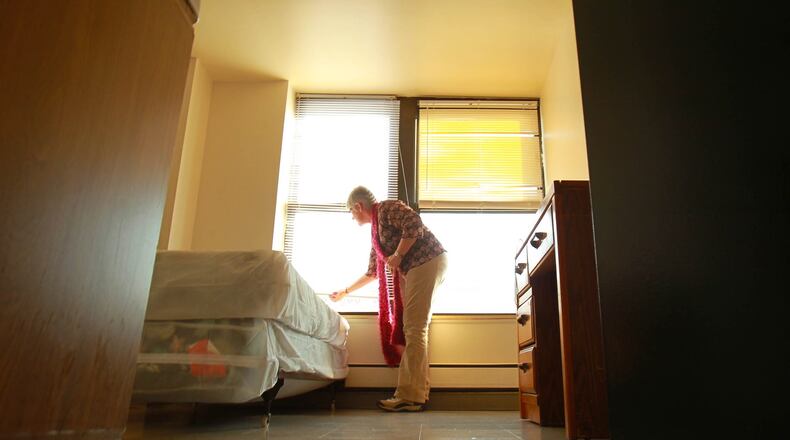The shift in the organization’s focus comes just before the Centers for Disease Control and Prevention’s pandemic induced eviction moratorium ends on July 31, which prevents landlords from evicting renters that fall behind on payments.
“Our goal is to prevent people from ever becoming homeless,” said Tracy Sibbing, vice president of community impact for United Way of Greater Dayton. “We’re really trying to get in on the front end before families become homeless.”
The Strong Families, former Family Stability Program, is a partnership with Homefull that helps families find or maintain their home. Moving into its eighth year, the services will be expanded to families in Preble and Greene counties that were once exclusively offered to those in Montgomery County.
“If a family is in a house that they can’t afford to be in or it’s not a safe environment, then to have a planned supportive move to identify something that does fall within their income bracket if possible and a location that is good for the children and the parents,” Sibbing said.
Homefull will provide most of the housing and assist families with a comprehensive case management.
Once they are notified, Homefull does an intake assessment to determine the families’ needs and other factors.
“We receive referrals that alert us that a family is experiencing some type of housing instability that typically then bleeds into other things like school performance, school attendance, and sometimes exacerbates mental health issues,” said Amy Shaeffer, director of Homefull’s Dayton division.
The agency’s focus is food, housing and jobs, which Shaeffer said could really move the needle on preventing homelessness.
The program is referral based and offers services for children as well as parents.
“It’s a whole family approach,” she said. “We’re going to be working with youth service organizations to provide resources for children in the home as well as working with universities and CTC’s across the three-county area for certification and adult education opportunities so that families and parents have higher earning potential.”
When the moratorium expires, millions of families could face eviction during a time when housing options and apartment rentals are slim.
Average rent was up 4.5% from historical raises of about 2.5%, according to a report from CBRE, a Cincinnati-Dayton real estate firm. Average rent in the Dayton region is about $890 per month, according to the report.
The organization also lost several affordable housing options following the 2019 Memorial Day tornadoes, but Sibbing said the organization is prepared to continue to expand their program to help those that need it.
Families in need of assistance can call 211, United Way’s local helpline, or visit Dayton-UnitedWay.org/get-help-now to search local available resources.
About the Author

